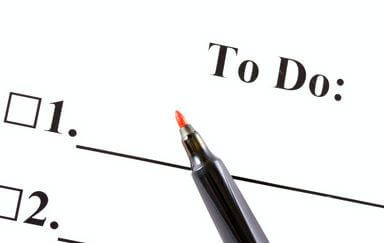
“I’ll do it later” – a common utterance of procrastinators worldwide. When you get in the habit of doing things at the last minute, the quality of your work often suffers, if it gets done at all. Besides affecting your productivity, research also links procrastination to poor health.
Researchers at Carleton University in Ottawa, Ontario have linked procrastination to a tendency toward neglecting problems rather than confronting them. Fuschia M. Sirois, a doctoral candidate in psychology, along with Timothy A. Pychyl, an associate psychology professor, performed a study of 374 undergraduate students to analyze this tendency.
The results of their study linked procrastination to higher rates of smoking, drinking, digestive ailments, cold and flu symptoms, insomnia and even postponing doctor’s visits in the case of severe health problems than the general student population.
Procrastination can be a very difficult habit to break. Simply keeping a ‘to-do’ list is often ineffective, as the procrastinator simply postpones the day’s tasks to the next day, and so forth.
The Oregon State University Academic Success Center offers several creative tips to help students break the cycle of procrastination. They include:
- Giving yourself a reward after completing a set amount of work. This could be a trip to see a movie with friends, the purchase of a book you’ve been wanting, or something else that will make you feel good about your accomplishment.
- Dividing larger tasks into smaller ones. If a project doesn’t seem so large, it may not seem as overwhelming to complete it.
- Employing a 10-minute rule. Make yourself work non-stop for 10 minutes. Take a small break after the 10 minutes are up if you need to, but then keep working in 10-minute intervals until you have completed what you need to do.
- Combining work with another activity, if possible. Complete some of your work while you are sitting at the park, or having lunch, so the part of your mind that would have you procrastinate is otherwise occupied.
 Another trick that may help you lessen your procrastination is to find a fellow procrastinator who is frustrated with their habit, and develop a buddy system. You can check in on each other to make sure the other is getting done what they need to, as well as provide encouragement and support.
Another trick that may help you lessen your procrastination is to find a fellow procrastinator who is frustrated with their habit, and develop a buddy system. You can check in on each other to make sure the other is getting done what they need to, as well as provide encouragement and support.
While the above tips and tricks may work for some people, for others, solving their procrastination problem is not always simple. According to Joseph R. Ferrari, an associate professor of psychology at DePaul University, “telling someone who procrastinates to buy a weekly planner is like telling someone with chronic depression to just cheer up.”
If you have actively tried a variety of methods to stop procrastinating, and do not seem to be getting anywhere, your procrastination may be a sign of a deeper anxiety or other emotional problem. Talking to a counselor may help you get to the root of your procrastination, and find ways to solve the underlying issue so that you can lead a more productive – and healthier – life.
-The Alternative Daily

